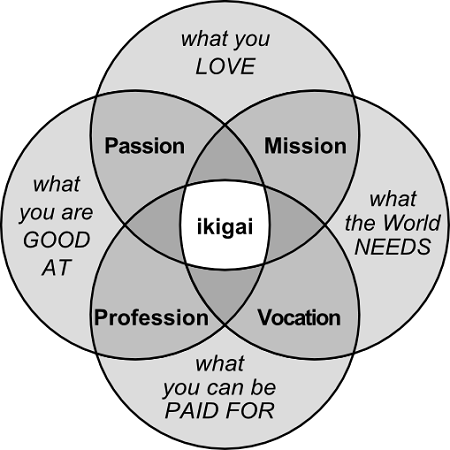Where did all the time go? It feels like just yesterday when I was a freshman in university, trying to make sense of the suddenly much larger world I had just entered.
Last week, I turned 38.
If we’re talking stats, the average lifespan of a Malaysian today is 76 years old. I’ve just crossed the halfway point. 20 years since I turned 18. 15 years since I started work. No longer young; moving into the second half of my life.
I’m writing this now because I fear I forget what it’s like to be a young person. To have dreams of making it big, but no action plan to get there. To have less worries, thinking mostly only for myself. To be insecure.
Every birthday’s a good time to reflect, but this one feels monumental. Here’s what I’ve learned about life in the first half.
1. Education
- A lot of people say formal education is useless. Bullshit. It’s only useless if you learn for the “wrong” reasons. Prime example: To get high grades, without understanding the principles behind what you’re studying. Study because you’re curious.
- Someone wise once told me, “University will be the most enjoyable part of your life.” I can see the reasoning: being young and carefree, surrounded by friends. But this is also false. Play your cards right, and your working life will be fun well beyond your student days.
- Education never ends. You can continue to have fun learning things until you die. Curiosity and open-mindedness is what keeps old people young.
2. Careers
- It’s okay to have no idea what you wanna do in five years. Or three. If there’s anything 2020-2022 have taught us, it’s that the world can change in the blink of an eye. What’s important is examining yourself (once in a while) with questions like: “Am I on a path that I’m proud of?”
- Underrated skills: Being reliable, a good communicator and likeable.
- You don’t need to play politics to succeed. Though understand a lot of what people call politics is actually knowing how to communicate well, obtaining support for your ideas, and navigating complex hierarchies. Don’t play dirty politics, but beware of others doing it. “Be as wise as serpents, and harmless as doves.”
- When it comes to career moves, >99% of the people I’ve spoken to have not regretted making a change. Even if they were terrified; even if they felt unqualified. I’ve done it several times myself.
- Even if it didn’t work out, the learnings were priceless. Some things you’ll only know if you give it a try.
- The Ikigai diagram is true. For a wonderful career: find the sweet spot between what you love, what you’re good at, what the world needs, and what you can be paid for.
- But understand it might take decades of trying new things and self-examination before you find it. Also, things change, as do people. You might love something new in 10 years, and the world might value it differently to your highly-paid skills today. That’s okay, you can adapt and find Ikigai again.
3. Getting Older at Work
- You start off as a young maverick, able to outsmart or at least outwork everyone. As you get older, you have to adapt. “Your professional decline is coming sooner than you think.” You’re no longer the smartest guy in the room. But you can be the wisest.
- Working fulltime in crypto I see this every day — where anyone above 30 is basically a boomer. Young people are running circles around me. I can only survive by being humble.
- The paradox of leadership is you’re responsible for a lot. But you can’t directly control a lot. Show your people the right direction, then trust them to do it. Have faith, but be there to fix things when they fail.
- Most situations are non-binary — not just do X or Y. Sometimes, the wisest move is to wait.
- Honest feedback is a gift. Even when it’s very uncomfortable. This is true for all relationships, whether at work or at home. As someone conflict-avoidant, I have to remind myself of this all the time. Remember to be kind when giving it though.
- As much as you like giving feedback, remember to accept it too. This doesn’t mean you accept 100% of what people are saying about you. It means you listen and consider their point of view.
- What can you still be good at when you’re old? Look for things that are “Lindy” i.e. things that have been around for a long time. Instagram Reels might be hip today, but people will still be reading 3,000 years from now. I hope when I’m 50, I’ll still be here, writing stuff that’s meaningful for me, and helpful for others.
4. Money
- Aim to have enough money to reach a comfortable standard of living. Beyond that, feeling rich is mostly a mental game.
- For most people, financial stability is a reasonable goal. Of course, you can aim to be an outlier with F.U. Money. But understand there are trade-offs — everything comes with a price.
- It’s better to be rich and anonymous than to be rich and famous. As Bill Murray once said, “When you become famous, you end up with a 24-hour job.”
- Passionate arguments about “who’s right?” and “which investment is better?” are mostly people fighting for status. A more socially-acceptable version of “Whose **** is bigger?” You don’t need to attach your identity to any single group. You can learn something from everyone, yet opt out of the status game.
- Different people have different objectives with their money, and that’s okay. No need to judge. Wish others the best in their journeys, but focus on yours.
- The mental ability to be easily satisfied is a superpower. It’s the antidote to lifestyle creep. Also the key to remaining happy when things get shitty in our chaotic world.
5. Balance
- Moderation — doing things without going to the extremes — is underrated. It’s where most of life happens, yet what gets amplified online are extreme stories. Understand that these stories are meant to shock you, so they can capture your attention.
- I spent years following “gurus,” who I thought held the secret path to success. As long as you follow their “guaranteed system.” I can assure you now, there’s no one path to success. No guarantees. Learn from your gurus, but moderate it with your own experiences. You’re gonna have to forge your own path.
- Don’t look for evidence where you’re right. Look for evidence where you’re wrong. This is awkward, unnatural, especially if you haven’t tamed your ego. But it’s the start of wisdom.
- If I could choose just one passage in the world to explain moderation, it’d be Rudyard Kipling’s classic poem to his son: “If.”
- You can love an investment to death, but that doesn’t mean you invest ALL your money into it. You’ll do better with a diversified portfolio.
- Example: for all my belief in crypto, I’ve only ever invested <10% of my net worth into it. Yes, maybe hardcore crypto bros would call me a wuss. But this wuss would sleep well at night even if Bitcoin crashes 90% today. I’d hit BUY before going to sleep though.
- Balance discipline with “sinning a little.” It’ll make life much more fun. Have a cheat day for your diet. If you can’t help gamble, set a weekly game night and limit your buy ins. Same for stocks, crypto, NFTs, whatever.
6. Relationships and Love
- Every relationship is like a plant. It requires water and sunlight, care and attention. Depending on how you take care of them, your relationships will evolve.
- Your parents are in their golden years now. You don’t have much time. Make the most of your days together. Important reading: The Tail End.
- Whereas you once ate lunch together every day, it’s natural you’re no longer close to your colleagues from 10 years ago. But if you attend the infrequent reunions, it’s fun.
- Love evolves too. First, you get attracted to someone. Then, you work through challenges with them. At the final stage, for a marriage to last — it’s more about commitment than anything else. Further reading: The Three Loves Theory.
- Have a shared project to give further meaning to your marriage. For most people, this will be raising kids.
- The most rational argument I’ve ever heard for having children comes from Naval Ravikant: “Give yourself the gift of loving something more than yourself.”
7. Life and Death
- Take care of your body. You think wearing knee guards during basketball makes you look like an old uncle. You’ll feel like an old uncle very quickly if you don’t protect your joints.
- Weight gain/loss is much more about diet than exercise.
- Time is our most precious resource. Life is short. Any aging billionaire would give up their billions to get back decades of life.
- A couple of years ago, I started doing a Memento Mori. It’s a visual representation of the weeks/years in your life, and you cross weeks out as you go along. I’m probably a weirdo for thinking about death so much. But it reminds me to savor this beautiful life we have today.
– – –
Pics from Wikimedia and Pexels: Bo Stevens





I am 40 and agree with most points but 1 thing to add is the focus on health , the older we age w more important diet and exercise is to continue being healthy physically and mentally. I can no longer have oily food without having a food comma
Thanks Lyn,
Hope you’re doing well, and wishing you a wonderful year end!
I’m in my mid-20 and I have already been thinking all the futures and the uncertainties about life and stuff. This article really shines some brightness on my dark tunnel of mindset. Saving some into my inspo file!
Thanks a lot Vivian!
Really appreciate the kind words.
A good read. 😊
Thanks!
Hopefully not too late/old for me to adapt and find that ikigai. 🙂
Thanks Jason. It’s never too late!
I do agree on your article above. Currently reaching my 30s and Ive started to understand that the younger generation will always be faster than you.
Only way is to use my experience and patience.
Love the ikigai pie chart!
Thank you Jason!
Hope you’re doing well!
Great article, my friend! I learned a lot. You are wise beyond your years. (And thanks for the shout-out on the Memento Mori chart!)
Thank you my friend. Hope you’re well! Was the least I could do 🙂